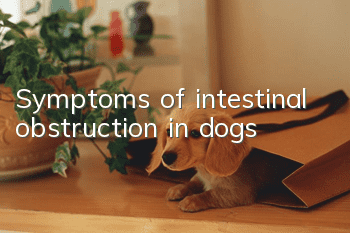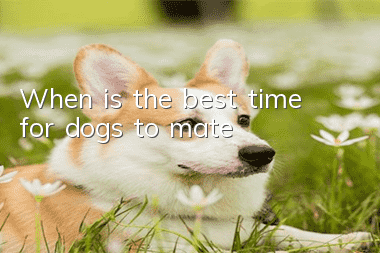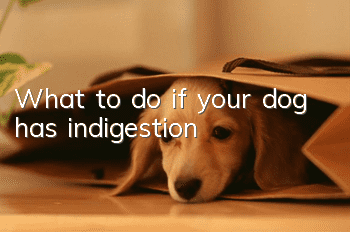Symptoms of intestinal obstruction in dogs

The main symptoms of intestinal obstruction in dogs are: decreased mental appetite, increased water consumption, abdominal wall tension, severe abdominal pain, refusal to touch the abdominal wall, increased vomiting frequency in sick dogs, and even vomiting of watery fecal material, and reduced or even stopped defecation. Auscultation reveals bowel sounds that first become hyperactive, then weaken, and finally disappear, with significant weight loss and dehydration. In severe cases, intestinal perforation, intestinal rupture, and acid-base balance disorders may cause shock or even death. In the case of intestinal obstruction in dogs, the best treatment is surgery. Generally, if detected in time, surgical treatment has a good prognosis.
1. Early symptoms of intestinal obstruction in dogs
The main early symptoms of intestinal obstruction in dogs are: depression, loss of appetite, constant vomiting, and pain when pressing the abdomen. Initial vomiting contains undigested food and mucus, and subsequent vomitus often contains bile or intestinal contents. If this situation is not treated in time, the dog can easily become dehydrated, faint, and die from shock due to frequent vomiting and pain.
2. Treatment of intestinal obstruction in dogs
Intestinal obstruction in dogs refers to symptoms in which the intestinal contents of dogs cannot descend due to various reasons. The causes include intussusception, intestinal stenosis, intestinal foreign bodies, etc. It can be treated conservatively with drugs or surgically.
1. Conservative treatment
Conservative treatment of intestinal obstruction in dogs generally involves promoting gastrointestinal motility or using edible oil to moisturize the intestines and relieve constipation. Dogs can generally recover within 2-3 days of treatment.
2. Surgical treatment
If the intestinal obstruction is caused by foreign bodies, intussusception, etc., it is not suitable for conservative treatment and requires surgery. Generally, the dog can recover after surgery, but attention should be paid to postoperative care.
Note: During the treatment, the owner needs to pay attention to the dog's diet. It is recommended that the dog eat light food, which will help the dog recover. At the same time, it is best not to give your dog hard objects to eat in normal times to avoid another intestinal obstruction in your dog.
- Why does a dog lick its own urine?
- The fastest way to replenish blood for dogs
- Benefits of dogs eating dog food
- How do novices train their dogs not to bark? Developing a good work and rest schedule is the key!
- Dog wheezes like asthma
- How to take care of your dog’s oral health
- How to treat vomiting in Lamborghini dogs
- What should I do if a female dog lifts her legs to pee like a male dog?
- How to prevent pancreatitis in dogs
- How to treat dog distemper



